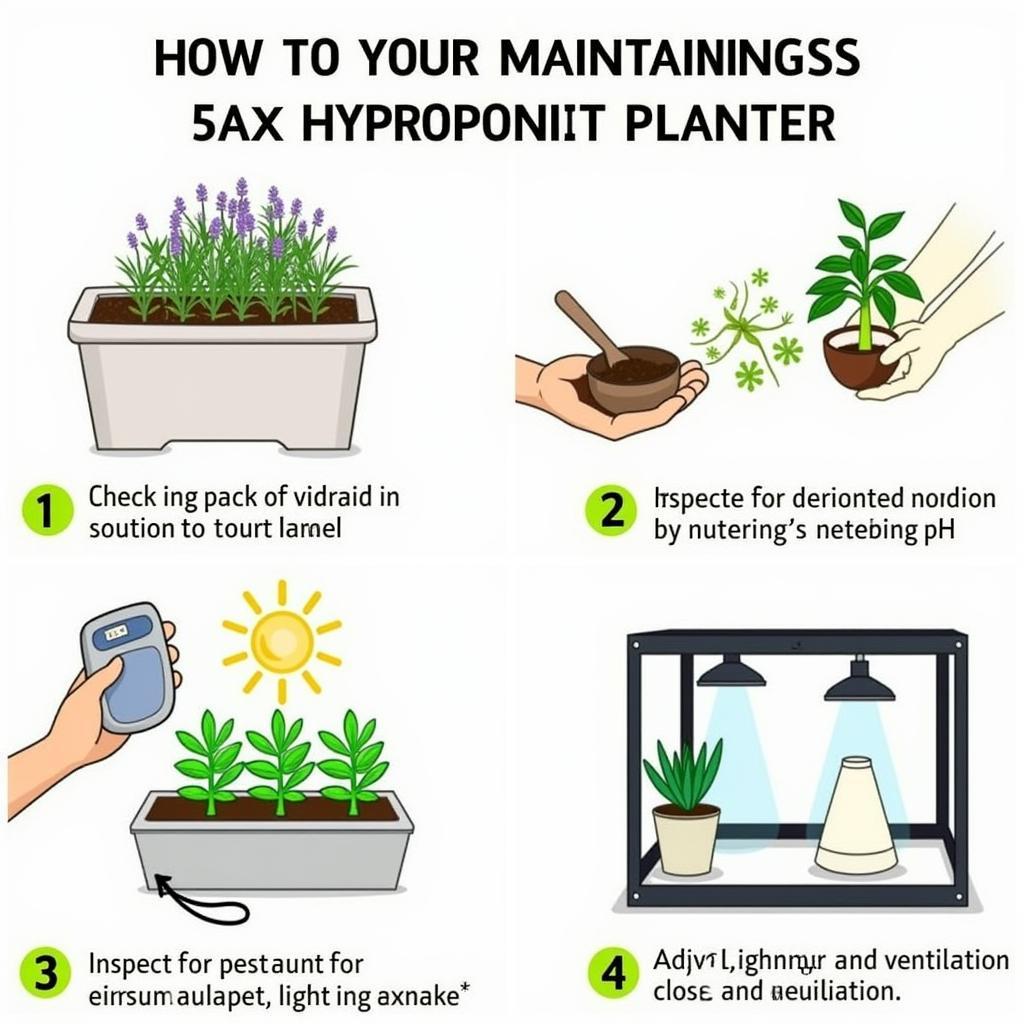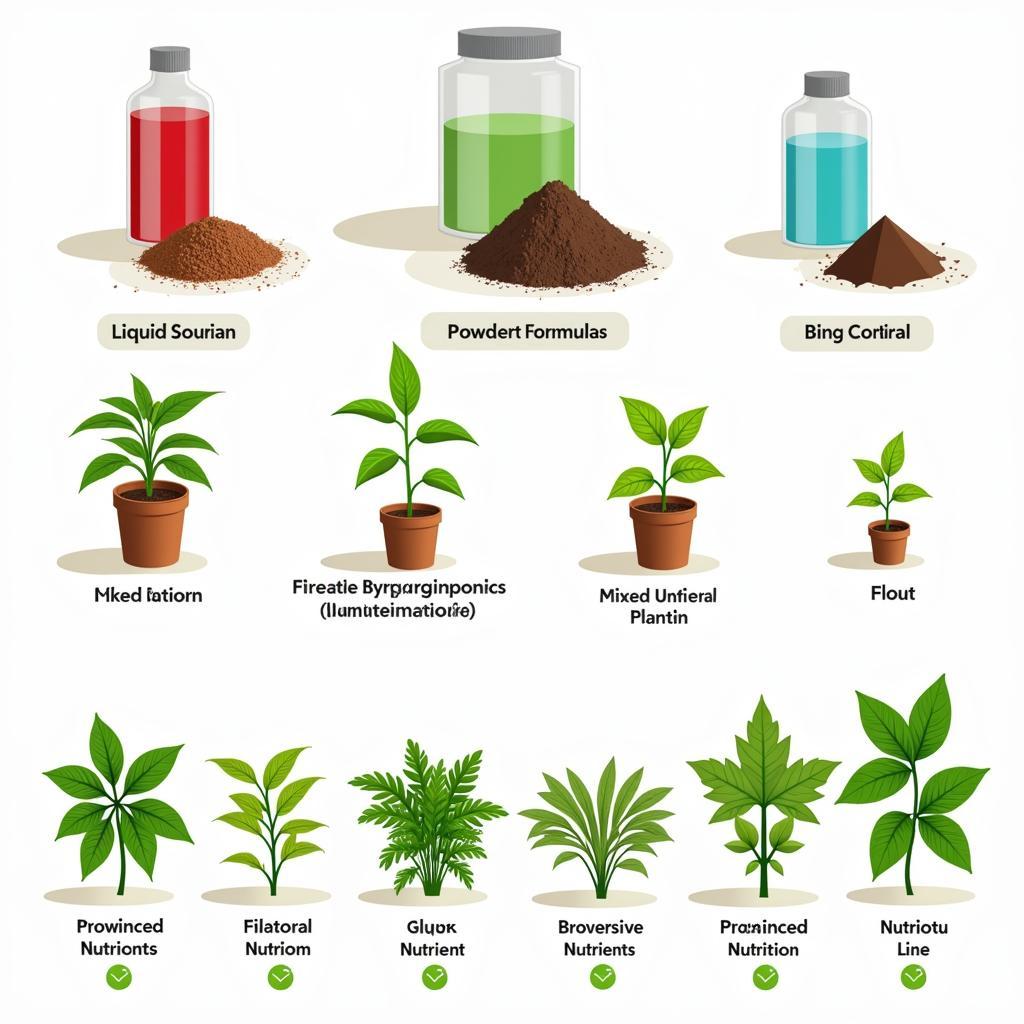Hydroponic Planter: A Comprehensive Guide
November 3, 2024Hydroponic planters offer a revolutionary way to grow plants without soil. They provide a controlled environment for optimal growth, resulting in healthier plants and higher yields. This guide covers everything you need to know about hydroponic planters, from choosing the right system to maintaining a thriving hydroponic garden.
Understanding the Basics of Hydroponic Planters
Hydroponics is a soilless method of growing plants, using nutrient-rich water solutions to nourish them. Hydroponic planters come in various forms, each designed to cater to different needs and plant types. The key advantage lies in the precise control over nutrients, pH levels, and environmental factors, enabling you to optimize plant growth.
Types of Hydroponic Planters
Choosing the right hydroponic planter is crucial for success. Several types exist, each with its pros and cons.
- Deep Water Culture (DWC): Simple and effective for beginners, DWC involves suspending plant roots in a nutrient-rich solution.
- Nutrient Film Technique (NFT): This method uses a shallow stream of nutrient solution flowing continuously over the plant roots.
- Drip System: A common and versatile method, the drip system delivers nutrient solution directly to the base of each plant.
- Ebb and Flow (Flood and Drain): This system periodically floods the growing tray with nutrient solution and then drains it back into a reservoir.
- Aeroponics: This advanced technique suspends plant roots in the air and sprays them with nutrient solution.
Choosing the best system depends on your space, budget, and the type of plants you want to grow.
Setting Up Your Hydroponic Planter
Setting up a hydroponic planter can seem daunting, but with the right guidance, it’s a straightforward process. First, choose a suitable location with adequate lighting. Then, assemble your chosen hydroponic system according to the manufacturer’s instructions. Prepare your nutrient solution, ensuring the correct pH level for your chosen plants. Finally, transplant your seedlings or seeds into the system.
Maintaining a Thriving Hydroponic Garden
Once your hydroponic planter is set up, regular maintenance is essential. Monitor the nutrient solution levels and replenish as needed. Check the pH levels regularly and adjust accordingly. Provide adequate lighting and ventilation. Regularly inspect your plants for signs of pests or diseases.
 Maintaining Your Hydroponic Planter
Maintaining Your Hydroponic Planter
Benefits of Using Hydroponic Planters
Hydroponic planters offer numerous advantages over traditional soil-based gardening:
- Faster growth: Plants grown hydroponically often mature faster due to optimal nutrient delivery.
- Higher yields: The controlled environment and efficient nutrient uptake can lead to significantly higher yields.
- Water conservation: Hydroponics uses less water than traditional gardening.
- No weeds: Eliminates the need for weeding and herbicides.
- Space-saving: Hydroponic systems can be set up in smaller spaces, making them ideal for urban gardening.
“Hydroponics provides a sustainable and efficient way to grow fresh produce, regardless of location or climate,” says Dr. Sarah Green, a leading expert in hydroponic agriculture.
Choosing the Right Nutrients
Selecting the right nutrients is crucial for healthy plant growth in a hydroponic system. Use a balanced nutrient solution specifically formulated for hydroponics. Different plants have different nutrient requirements, so choose a formula that suits your chosen crops.
 Choosing the Right Nutrients for Hydroponics
Choosing the Right Nutrients for Hydroponics
“Investing in high-quality nutrients is essential for maximizing yields and ensuring healthy plant growth in hydroponics,” adds Mr. John Smith, an experienced hydroponic gardener.
Conclusion
Hydroponic planters offer an innovative and efficient way to grow plants, providing numerous benefits over traditional methods. By understanding the different types of systems, setting up your planter correctly, and maintaining a consistent environment, you can enjoy a thriving hydroponic garden and reap the rewards of fresh, healthy produce.
FAQ
- What are the best plants for hydroponics?
- How often should I change the nutrient solution?
- What is the ideal pH level for hydroponic systems?
- How much light do hydroponic plants need?
- What are the common problems in hydroponics?
- How do I prevent pests and diseases in a hydroponic system?
- What are the costs involved in setting up a hydroponic system?
Need more help? Contact us! Phone: 0915117113, Email: [email protected]. Visit us at: Tổ 3 Kp Bình An, Phú Thương, Việt Nam, Bình Phước 830000, Việt Nam. We have a 24/7 customer support team.